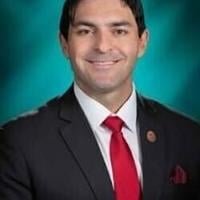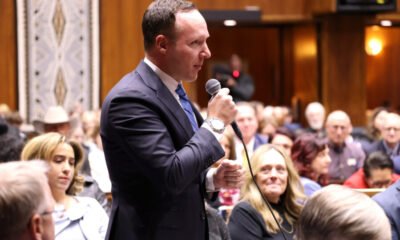Donald Trump
Republicans Take a Page from RFK Jr. to Propose SNAP Ban on Soda and Candy Purchases

Republicans are pushing to ban the purchase of candy and soda using federal Supplemental Nutrition Assistance Program (SNAP) funds. Critics argue that the proposal is overly broad, potentially preventing low-income families from buying items like flavored water and granola bars.
“This raises a larger question about our health as a country and government programs that tacitly endorse the consumption of unhealthy foods,” stated Rep. Matt Gress, R-Scottsdale, during a recent hearing of the Arizona House of Representatives Health and Human Services Committee.
Among the items Gress highlighted as inappropriate for SNAP purchases were Snickers bars, Coca-Cola, and various energy drinks. He asserted that while he buys candy, he does so with his own hard-earned money, reinforcing his advocacy for personal responsibility.
Robert F. Kennedy Jr., President Donald Trump’s selection for the role of Secretary of the U.S. Department of Health and Human Services, has echoed similar sentiments in his Make America Healthy Again initiative, opposing SNAP benefits for junk food.
The legislation faced a critical setback when it tied in a committee vote, 6-6. Mesa Republican Rep. Ralph Heap joined Democrats in voting against the bill, highlighting concerns over its vague definitions despite acknowledging that obesity is a significant concern in Arizona and nationally.
The proposal, which is now stalled, could be reconsidered if Rep. Leo Biasiucci, the bill’s sponsor, chooses to amend it. Historically, the GOP has criticized SNAP purchases, often pushing for stricter eligibility requirements and benefit reductions. Currently, SNAP serves over 927,000 Arizonans, primarily children, seniors, and people with disabilities.
SNAP, which provides low-income families with monthly grocery benefits, allows for certain restrictions, including prohibitions on tobacco and alcohol purchases. Biasiucci cited a troubling incident during a trip to a Circle K gas station, claiming he witnessed a family buying large quantities of junk food with their SNAP benefits as inspiration for the bill.
While Biasiucci did not connect his legislative effort to external movements, proponents of the bill frequently referenced talking points from the Foundation for Government Accountability. Under the proposed law, Arizona’s Department of Economic Security would be tasked with seeking ongoing waivers from the USDA to exclude candy and soda from SNAP lists—waivers that have historically been denied.
A parallel proposal introduced in the U.S. House aims to restrict food purchases with SNAP benefits, including items like soft drinks and ice cream, which has attracted co-sponsorship from several Republican Congress members.
The rhetoric around the bill has fostered a divide, with proponents arguing against taxpayer-funded unhealthy eating habits. However, a study from the American Journal of Public Health reveals that SNAP participants do not exhibit lower cardiometabolic health compared to nonparticipants.
Michelle Simpson, a lobbyist for the William E. Morris Institute for Justice, argued that the bill represents government overreach, with external entities dictating how citizens allocate their resources. “Overly prescriptive purchasing restrictions do not help economically stressed families,” Simpson remarked.
Concerns voiced include defining what constitutes candy and soda, which could inadvertently prevent the purchase of nutritious options like granola bars while allowing less healthy snacks. The definitions in the bill could impact a wide range of products, creating ambiguity regarding what is excluded or permitted.
After multiple committee members raised concerns, Biasiucci promised to refine the language of the bill. Advocacy groups featured voices like Grace Price, a health campaigner, and Calley Means, who termed the current SNAP allowances as harmful to public health.
In contrast, Rep. Alma Hernandez, D-Tempe, critiqued the privilege of dictating food choices for low-income families, noting food deserts where grocery stores are scarce. Hernandez also challenged supporters for failing to show evidence that restricting junk food purchases with SNAP would lead to improved public health outcomes.
Despite a focus on obesity, Simpson highlighted a need for broader legislative efforts to address the issue rather than singling out SNAP beneficiaries. Tensions flared during the meeting, culminating in the committee chair expelling Means after he verbally confronted opposition members, illustrating the heated nature of the ongoing debate.


















